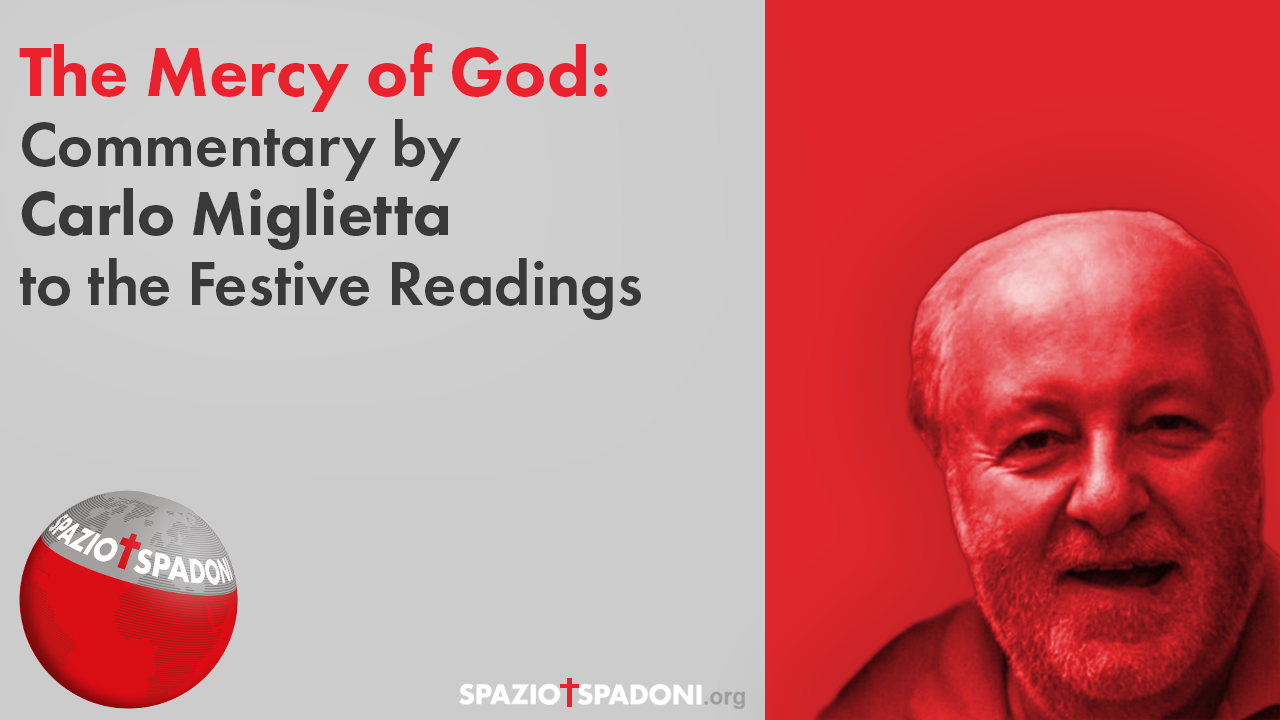
Sunday XX Year B – The Eucharist Embeds Us In The Paschal Mystery Of Christ
Readings: Pro 9:1-6; Eph 5:15-20; Jn 6:51-58
Everyone agrees that the first part of John chapter 6 can be read in a spiritualist key, with some allusion to the Eucharist: but are vv. 51-58 to be understood only in a sacramental sense? I believe that the first revelatory meaning is always adherence to Christ.
If in the first part the key-words were “come to me” and “believe” (6:35), now they are “give” and “eat-believe”: there faith was asked for in God entering history in Jesus (incarnation), here in God giving himself up to self-sacrifice (redemption). The words “flesh and blood” do not simply indicate the person of Jesus, but that he is about to be handed over to death. The Gnostic and Docetic heresy held it impossible that a God could suffer and die-Jesus of Nazareth would only house divinity from Baptism to the beginning of the Passion. John insists on the reality of the Incarnation, on the complete identification of the divine Christ with the man Jesus of Nazareth, on the fact that Jesus is the Christ who came “not in water only, but in water and blood” (1 John 5:6): the baptismal theophany is inseparable from the death on the cross, which for John is the ultimate site of God’s manifestation. This is why he reiterates the need to join Christ’s “sarx,” a term that means “flesh” in a plastic, anatomical, muscular sense: and he scandalizes by using the very concrete verb “troghein” (hence the word trough…) which does not so much mean “eating” as “chewing,” “devouring,” “grazing.” We must not sugarcoat this realism: it is the realism of the Incarnation.
The celebration of the Eucharist, with its sacramental concreteness, is a sign of Christ’s true humanity: by participating in it, we “proclaim his death, we proclaim his resurrection, in anticipation of his coming.” “The realistic understanding of the sacramental meal (eating the flesh, drinking the blood) has nothing magical about it. Through the meal Jesus himself joins those who receive him (v.56); they live through him and he will resurrect them…(v. 54), just as wisdom joins, in the First Reading, those who partake of his banquet (Prov 9:1-6). Sacramental nourishment is only a means of attaining personal communion with him” (R. Schnackenburg).
The text returns several times to the concept of the “last day” (6:39,40,44,54). “On the last day, the great day of the Feast,” Jesus invites people to drink from the living water that will flow from his bosom, that is, from the Spirit that he will pour out at his glorification (7:37-39): this will be fulfilled in his death, when he will be glorified, he will pour out his Spirit, and from his side will flow water (19:30-34). John is the herald of an eschatology that is already fulfilled in the mystery of Christ: “He who believes in him is not condemned, but he who does not believe in him has already been condemned” (3:18); “he who believes has eternal life” (3:35; 6:47; cf. 5:54); in his death Satan, suffering and death were once and for all overcome.
By eating his flesh and blood, that is, by participating in the mystery of his death, we already now have eternal life. In fact, this “already” is such in faith, because we are still prisoners of our creaturely finitude: the Eucharist immerses us in the optimism of a victory already realized, while at the same time being a pledge of our future resurrection (v. 54), opening us to a “not yet” that will be realized at our death, when we contemplate face to face the glory of God himself (1 Cor. 13:12). The Eucharist, by placing us in the past of the Lord’s death, hinges us in the present of a life in him that indwells us (v.56), projecting us into the total communion with God of the future messianic banquet.
There is really nothing left for us, as the Second Reading invites us (Eph. 5:15-20) but to raise “psalms, hymns, inspired songs, singing and praising the Lord…, continually giving thanks for everything to God the Father, in the name of our Lord Jesus Christ.”
